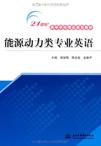能源动力类专业英语
出版时间:2009-8 出版社:水利水电出版社 作者:谢诞梅,陈启卷,金振齐 主编 页数:336
前言
20世纪以来,世界能源发展形势发生了巨大变化,已从应对能源资源短缺转变到协调能源发展与气候环境保护上来。在此背景下,包括中国在内的世界各国均在调整其能源发展战略,加快能源基础建设和能源结构调整。与此同时,国家高等教育也在进行相应的教学改革,部分学校已将原来的“热能动力工程”专业调整为“能源动力系统及其自动化”专业。这使得该专业教学内容更加广泛,与国际接轨更加紧迫,为此我们编写了本书。 书中内容参考了大量文献,内容丰富、新颖,广泛涉及相关领域的新技术和新动向,诸如洁净煤技术,CO2捕集技术,整体煤气化燃气一蒸汽联合循环技术,烟气脱硫技术,超(超)临界技术,无头除氧器,双背压凝汽器,少油点火与等离子点火,水力资源利用和开发现状,水电机组控制模型和数字调节,水电机组状态监测与诊断,水力资源可持续发展,太阳能技术,风电技术,等等。 全书分为5部分(包括能源概论、火力发电、水力发电、核能发电与新能源发电、节能与环保技术等),32个单元,共涉及约1000个专业词汇,专业词汇覆盖面广、生词重复率高、专业知识涵盖范围广。全书的编排力求保持能源动力类专业的知识系统性和完整性,而且符合英语教学的特点。为便于不同层次的读者选择使用,每单元均配有正文和阅读材料,多数单元后配有专业术语解释,书后附有总词汇表和常用单位的换算。 全书由谢诞梅、陈启卷、金振齐担任主编。其中第1部分由谢诞梅等编写,第2部分由金振齐、谢诞梅等编写,第3部分由陈启卷等编写,第4部分由谢诞梅、金振齐等编写,第5部分由金振齐、谢诞梅等编写。其中,研究生谭成成、侯佑民、钱勇、赵先波、蔡笋、李汪繁、邹海青等也参加了部分书稿的整理和编写工作。 全书由华中科技大学黄树红教授审阅,提出了许多宝贵的修改意见,在此表示衷心的感谢。
内容概要
本书是为满足高等学校能源动力系统及自动化(即热能动力工程)专业的专业英语教学需要而编写的教材。内容涉及能源概论、火力发电、水力发电、核能发电与新能源发电、节能与环保技术等方面的知识及新技术和新动向。本书每单元均包括正文和阅读材料,部分单元配有专业术语解释,书后附有总词汇表。书中选用的资料全部取自近年出版的英文原版书刊和文献,其来源广泛,内容系统性强,涉及到的专业词汇覆盖面广。 本书可作为能源动力系统及自动化(即热能动力工程)专业的本科生和研究生的专业英语教材,或相关双语课程的教材,也可供从事能源动力及电力行业工作的工程技术人员和管理人员参考。
书籍目录
前言Part One Energy Introduction Unit One Energy in China Unit Two Electricity in China Unit Three Clean Coal Technologies Unit Four IGCC Part Two Thermal Power Unit One Introduction of Boiler Unit Two Boiler Arrangement and Key Components (Ⅰ) Unit Three Boiler Arrangement and Key Components (Ⅱ) Unit Four Boiler Auxiliaries Unit Five Boiler Operation and Control Unit Six Introduction of Steam Turbine Unit Seven Steam Turbine Construction Unit Eight Steam Turbine Auxiliaries Unit Nine Governing and Protecting System of Steam Turbine Unit Ten Steam Turbine Operation Part Three Hydropower Unit One Hydropower Development Around the World Unit Two Hydropower Project (Ⅰ) Unit Three Hydropower Project (Ⅱ) Unit Four Hydropower Plant Control Unit Five Hydroplant Control System Unit Six Hydropower Plant Machine Dynamic Diagnosis Unit Seven Sustainable Reservoir OperationPart Four Nuclear Power and Renewable Energy Unit One Nuclear Power 215 Unit Two Renewable Energy 222 Unit Three Solar Power Generation Unit Four Wind Power Generation Unit Five Geothermal Power Unit Six Biomass EnergyPart Five Energy Saving and Environmental Control Unit One Energy Conservation Unit Two Oil Saving Unit Three Wastewater Pollution Control Unit Four Air Pollution Control Unit Five Solid Waste DisposalAppendix A GlossaryAppendix B Conversions of UnitsReferences
章节摘录
to expend great effort to improve the countrys energy consumption structure by exploring new energy resources such as geothermal power, solar energy, bio- energy and wind pow- er to reduce the use of traditional energy resource. The use of new energy resources especially the wind power has got tremendous devel- opment those years. However, the present capacity exploits only a marginal portion of the potential available. So the exploring of new energy is still an important direction of China development. Reading Material I Energy- related Environmental Problems Chinas rapid economic growth over the last two decades has also brought it to be a country with rapid development of electric power industry, as well as several energy - re- lated environmental problems. The economic activities of production and consumption re- quire the use of energy, and the use of energy affects the environment in the forms of wa- ter pollution, air pollution and emission of CO2 that causes global warming. Environmen- tal pollution from fossil fuel combustion is damaging human health, air and water quality, agriculture, and ultimately the economy. China is one of the largest sources of carbon di- oxide emissions in the world.
图书封面
评论、评分、阅读与下载
用户评论 (总计3条)
- 由于开设专业英语,正好我们打算新开的专业就是能源与动力工程专业,看到这本书就买来看看能不能当专业英语教程。同时还买了《能源与动力工程专业英语》,两本都不错,但这本是“21世纪高等学校精品规划教材”所以打算用这本当教材,那本当参考教材。
- 如题,内容新,有最新的发电技术
- 很专业的一本书,全英文的,适合有一定专业知识和英语能力的人阅读。
